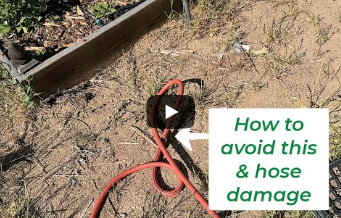How to Choose the Best Garden Hose for Your Gardening Needs: A Complete Guide
The Best Garden Hose – A Guide for You
Gardening is a joy for many, and having the right tools can make it even more delightful. One essential tool in any gardener’s arsenal is a reliable garden hose. But with so many options out there, how do you find the one that’s right for you? Here’s a comprehensive guide to help you select the best garden hose for your gardening needs.
1. Understanding Hose Types
Firstly, it’s important to understand the different types of hoses:
- Standard Garden Hoses: These are your everyday use, average hoses, suitable for general watering tasks.
- Soaker Hoses: Perfect for deep-rooted plants, soaker hoses allow water to seep out slowly, providing deep water penetration.
- Expandable Hoses: Lightweight and easy to store, expandable hoses can grow to several times their length when water is turned on.
- Coiled Hoses: Ideal for small areas, coiled hoses are easy to store and very flexible.
- Heavy-Duty Hoses: For more robust gardening needs, heavy-duty hoses offer extra durability and kink-resistance.
2. Material Matters
Hoses are typically made from one of three materials:
- Vinyl: Lightweight and affordable, vinyl hoses are good for light-duty watering tasks.
- Rubber: More durable and resistant to kinks and abrasions, rubber hoses are suitable for heavy-duty use.
- Composite: A combination of vinyl and rubber, offering a balance between weight, durability, and flexibility.
3. Length and Diameter
- Length: Hoses typically range from 25 feet to 100 feet. Consider the farthest distance from your spigot. However, longer hoses can be heavier and more difficult to manage.
- Diameter: Standard diameters are 1/2 inch, 5/8 inch, and 3/4 inch. The larger the diameter, the more water the hose can carry.
4. Couplings and Fittings
- Brass vs. Plastic: Brass hose couplings are more durable and leak-resistant but heavier. Plastic is lighter but less durable.
- Quick Connects: For ease of use, consider hoses with quick-connect fittings.
5. Flexibility and Kink Resistance
A kink-resistant hose saves time and frustration. Look for hoses labeled as “kink-free”. Also, test the flexibility by making a tight loop with the hose.
6. Weight
If you need to move the hose often or have storage limitations, consider the weight. Lightweight hoses are easier to maneuver and store.
7. UV Resistance
Exposure to sunlight can deteriorate a hose. Look for UV-resistant hoses to prolong their lifespan.
8. Eco-Friendly Options
For the environmentally conscious, there are eco-friendly hoses available made from recycled materials or free from harmful chemicals.
9. Warranty
A good warranty can be a testament to a hose’s durability. Look for products with longer warranty periods for added peace of mind.
10. Price
Finally, balance your budget with your needs. While it might be tempting to go for the cheapest option, investing in a good quality hose can save you money in the long run.
Conclusion
Remember, the best garden hose for you depends on your specific needs and gardening habits. Take the time to consider what you need from a hose – whether it’s for heavy-duty watering, reaching distant garden beds, or just a simple tool for your balcony plants. With this guide, you’re well on your way to finding the perfect garden hose that will make your gardening easier and more enjoyable. Happy gardening!












You must be logged in to post a comment.